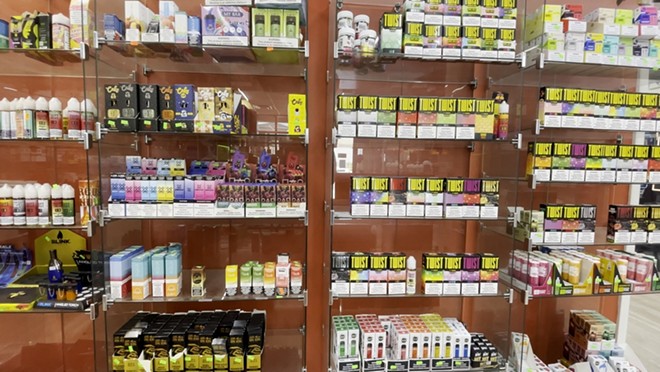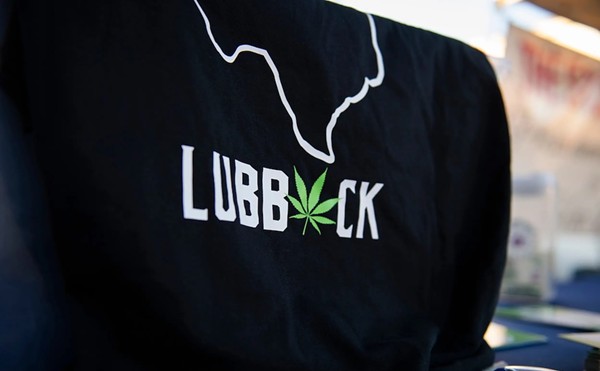Delta-8's Wild West days may be numbered.
Federal lawmakers face growing pressure to close a loophole in the U.S. Farm Bill that allows commercial sale of THC-containing hemp products such as delta-8. Those products, widely available in retail spaces ranging from smoke shops to convenience stores, produce a similar high to cannabis but are technically legal to sell and buy.
The 2018 bill, scheduled for renewal every five years, is up for reauthorization again, and many — including law-enforcement officials, public health experts and even some in the cannabis business — want new language either banning the intoxicants' sale or putting major restrictions around them.
Late last month, a bipartisan group of 21 attorneys general sent a letter to Congress urging it to narrow the definition of legal hemp as it renews the Farm Bill. The previous language allows "bad actors" a workaround to sell unregulated THC-containing products, the group argues, and many of those are falling into the hands of kids.
"Regardless of your Committees' intentions, the reality is that this law has unleashed on our states a flood of products that are nothing less than a more potent form of cannabis, often in candy form that is made attractive to youth and children — with staggering levels of potency, no regulation, no oversight, and a limited capability for our offices to rein them in," the AGs said.
Due to the $28 billion delta-8 industry's current lack of regulation, states are dealing with a rise of poisonings from poorly made and improperly labeled products, according to the letter.
Between Jan. 1, 2021, and Feb. 28, 2022, poison control centers nationwide handled 2,363 delta-8 exposure cases, according to the Centers for Disease Control and Prevention. Nearly half of those involved people under the age of 18.
Indeed, a national survey of more than 2,000 high school seniors from the youth polling group Monitoring the Future found more than 11% had used delta-8 in the past year.
Banning or regulating
Jonathan Miller, general counsel for industry group the U.S. Hemp Roundtable, last month told the Dallas Observer that the lack of regulation on intoxicating hemp products is troubling, especially their accessibility to kids. However, he said banning them in the Farm Bill is the wrong approach.
"We need regulation. We need the FDA to come in and start regulating hemp products like they promised they would five years ago," he told the publication. "The answer is not a prohibition or changing the definition of hemp in a federal law to ban these products."
However, states such as Texas may not be waiting for Congress or the FDA to act. Last week, Lt. Gov. Dan Patrick, who sets the agenda for the Texas Senate, said he wants the body to consider a ban on intoxicating hemp products ahead of the 2025 session.
If Texas moves to do so, it would join more than a dozen states that have banned delta-8 and similar products, according to the National Cannabis Industry Association. Several others have passed laws restricting the availability of the intoxicants.
Unexpected ally
While hemp producers may not want to see alterations to the Farm Bill, some in the legal cannabis industry have no problem with that. Nor with Texas lawmakers curbing delta-8's availability.
Nico Richardson, CEO of Austin-based Texas Original Compassionate Cultivation, one of three suppliers approved under the Lone Star State's narrow medical-cannabis program, said Delta-8 purveyors are deliberately and dangerously exploiting a loophole.
In contrast to cannabis, where THC is naturally occurring, delta-8 products containing significant doses of the compound are created through a chemical process. Third-party lab testing shows that some products now on the market are more potent than they claim to be, contain illegal THC or include harmful contaminants, Richardson said.
"I'm not against broad-scale legalization in this country, but it needs to be done in a well-regulated fashion," he said. "It needs to be done like in other states that have regulated their recreational markets, which requires stringent testing. Because this is a bio-accumulator plant, and it sucks up heavy metals and pesticides and puts them in the flower. And you do not want to be consuming that."
Ironically, Richardson and others urged Texas lawmakers to take steps to regulate THC-containing hemp products during the 2023 legislative session, but he said those efforts went ignored. Although the industry was prepared to see a delta-8 bill materialize, one never did.
"To see what happened with hemp [in the 2023 session] was just shocking," he said. "It was very clear the intent was not to have a completely open drug market in Texas. But that's where we are today, and it's only getting worse."
Subscribe to SA Current newsletters.
Follow us: Apple News | Google News | NewsBreak | Reddit | Instagram | Facebook | Twitter| Or sign up for our RSS Feed
















